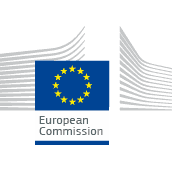
Promote swift integration of TCNs into the labour market through strengthened cooperation and mobilisation of employers and social and economic partners - AMIF-2017-AG-INTE-04
Deadline: Mar 1, 2018
CALL EXPIRED
CALL EXPIRED
Social Affaires and Inclusion
Disadvantaged People
Asylum, Migration and Integration Fund (AMIF)
Aid to Refugees
Youth Workers
Immigration Law
Migrants and Refugees
Scope:
Integration in the labour market is a challenge which cannot be tackled by only one actor in isolation. All actors involved must work together to create the conditions for a quick and effective integration of third-country nationals in the labour market. The role of economic and social partners and of public and private employers is key in this area.
In 2017, the Commission launched several initiatives to mobilise economic and social partners and employers to promote labour market integration. On 23 May 2017, at the occasion of the second European Dialogue on Skills and Migration, employers and representatives of economic and social partners discussed the challenges and benefits of the integration of third-country nationals in the labour market and exchanged good practices on how to effectively promote integration [http://europa.eu/rapid/press-release_IP-17-1386_en.htm]. On the same day, the initiative "Employers together for integration" [https://ec.europa.eu/home-affairs/what-we-do/policies/legal-migration/european-dialogue-skills-and-migration/integration-pact_en] was launched in order to give visibility to the activities put in place by employers to support integration of refugees and other migrants in their workforce and beyond.
In order to continue this process, and considering the different levels of experience and of engagement across the EU on this issue, it is particularly relevant to promote transnational projects and partnerships to foster the integration of third-country nationals in the labour market and to promote employers' and social partners' engagement on this topic.
The objectives are to:
- Promote early and effective integration in the labour market of third-country nationals, by creating effective transnational partnerships with all actors concerned and in particular social and economic partners, employers, public and private employment services and national and local authorities to foster the development of tools, methods, capacity building and experience exchanges;
- Raise awareness about the conditions for early and effective labour market integration of third-country nationals, as well as of its economic and social benefits and mobilise employers and other key actors to become active on this topic.
Projects applications submitted under the present call for proposals under priority 4 should be designed to include in particular one or more of the following activities (non-exhaustive list):
a. Developing measures or design schemes aiming to facilitate the labour market integration of third-country nationals and in particular refugees through, for example:
• the promotion of the use of the EU Skills Profile Tool for Third Country Nationals [http://ec.europa.eu/migrantskills];
• the provision of skills assessment/validation to inform the delivery of tailored learning offers, along the lines of the Upskilling Pathways Council Recommendation [http://ec.europa.eu/social/main.jsp?catId=1224];
• the organisation of mentoring programmes that support third-country nationals to integrate into the workplace and/or support their skills development;
• the provision of pre-recruitment and on-the-job training, including apprenticeships, accelerated training, etc.;
• the provision of information and advice to third-country nationals on rights and duties concerning their access to the labour market and at the workplace, in accordance with national law and practices;
• support to employers in hiring third-country nationals, e.g. through providing training, information on legal framework, support matching etc.;
• the provision of support to trainers in adapting training to refugees’ and other migrants needs, for example in the context of vocational training while taking into account employers’ skills needs;
• the provision of post-placement support to third-country nationals after they start employment, and to their employers, to ensure sustainability of employment;
• the promotion of diversity and non-discrimination at the workplace.
b. Exchanging methods and practices on the different above-mentioned actions and promoting capacity building related to labour market integration of third-country nationals among employers, employers' organisations, chambers of commerce and industries, trade unions and migrants’ associations.
c. Promoting the "Employers together for integration" [https://ec.europa.eu/home-affairs/what-we-do/policies/legal-migration/european-dialogue-skills-and-migration/integration-pact_en] initiative and mobilising employers to actively promote integration in their workforce and beyond.
Projects applications that would include at least 3 of the following entities in their applications will be assessed as being particularly relevant:
- European or national associations of employers,
- European, national or regional Chambers of commerce and industry,
- European, national or regional skilled craft Chambers,
- European, national or regional Trade unions organizations
- Vocational education and training providers
- Public or private employment services
- National, regional and local authorities with responsibility for integration into the labour market
Social partners organization (employers or trade union organizations) could be cross-industry or sectoral organizations.
In addition, applicants can include other relevant entities such as non-governmental organisations active in the field of labour market integration.
When proposals aim at reaching out and involving employers, both private and public, a clear and well defined strategy should be included in the proposal (which employers to be involved, kind of activities to be implemented, expected outcomes from the cooperation with them).
Projects will have to represent a clear added value vis-à-vis existing actions and networks which could be active in the same field or target same type of activities.
Activities submitted under this priority should not be already financed under other EU Funds in particular the European Social Fund (ESF) [For more information on projects under the ESF, please refer to https://ec.europa.eu/esf/transnationality/partners-search and https://ec.europa.eu/esf/transnationality/forums/migrants].
Public link: Only for registered users
 EC - DG - Asylum, Migration and Integration Fund (AMIF)
EC - DG - Asylum, Migration and Integration Fund (AMIF)
Please Log In to See This Section